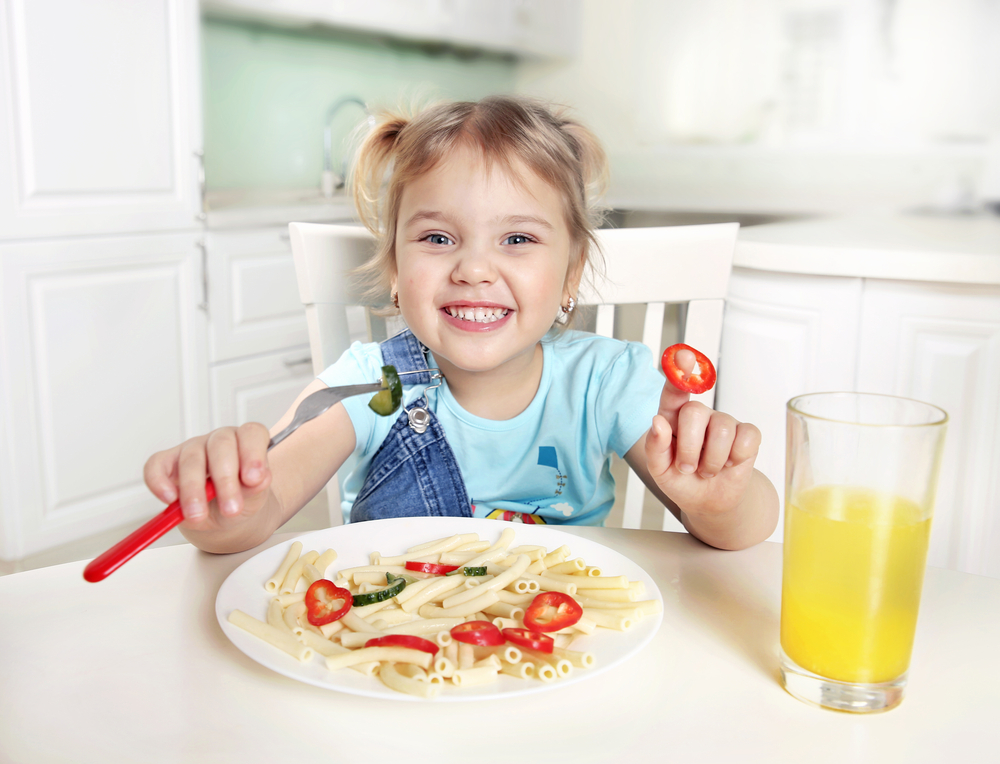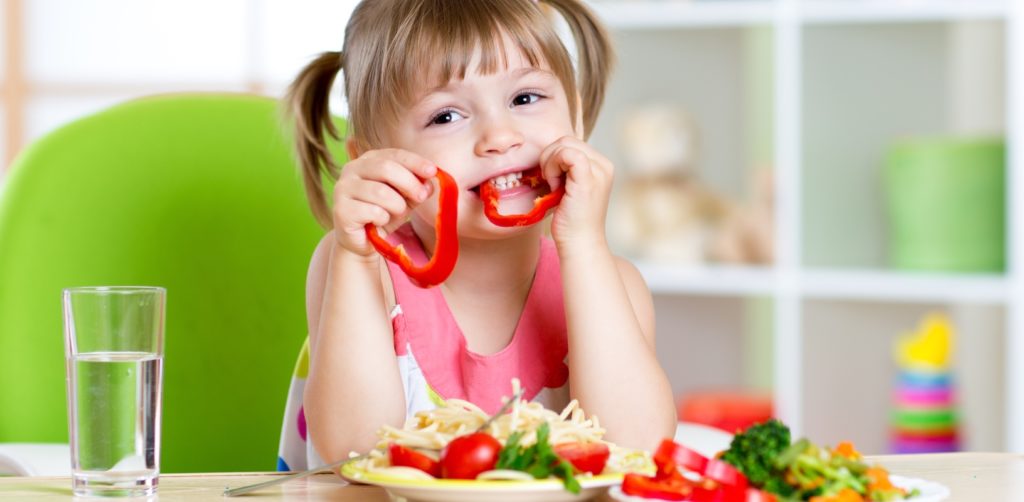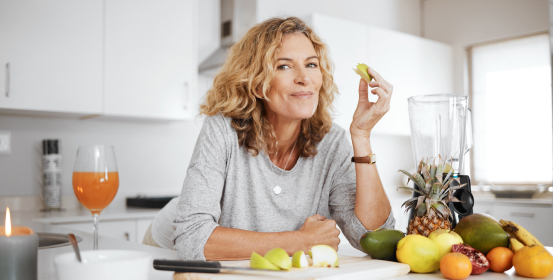Constipation is common in childhood, especially in primary and secondary school children. It is one of the typical gastrointestinal problems children experience. The incidence of constipation is increasing, due mainly to diet and lifestyle factors, and is set to become a major public health issue that parents and physicians face.
It is a problem that must be addressed without delay. Parents should approach childhood constipation in an active manner in order to determine its causes and start appropriate treatment as soon as possible. After it is determined whether constipation is functional or organic, the physician will prescribe the appropriate treatment.
How to treat constipation in children?
The first step in treating functional constipation is adopting lifestyle and diet changes. The diet should be varied and we should avoid combining foods that can cause hard stools, such as rice, bananas, snacks, dry foods, and carrots.
Consuming too much dairy products may also lead to constipation. We should reduce our milk intake to half a litre a day or less. Drinking enough fluids and staying physically active is essential. While a lack of physical activity is not an issue in pre-school children, it becomes a problem in children of school age and teenagers who are increasingly sedentary.

Just as in adults, insufficient fiber intake is one of the key factors for occurrence of constipation in children too. Appropriate intake of dietary fiber is an essential part of a healthy diet. Even though adequate fiber intake reduces the possibility of constipation, excessive fiber intake does not additionally help in improving digestion. Key is to adapt the fiber intake to the child’s needs, primarily taking into consideration the child’s age. Some experts think that the necessary quantity of fiber (expressed in grams) in a child’s diet can be determined by adding 5 to the years.
Therefore, general recommendations for average daily fiber intake in children are:
- 19 g per day for children from ages 1 to 3 years,
- 25 g per day for children from ages 4 to 8 years and
- 25 to 30 g for older children.
The best is that children take in a combination of soluble and insoluble fiber. Soluble fiber (for example, pectin in apples) can be found in fruit and vegetables, and barley or oat and legumes. Just as their name suggests, they are soluble in water and they slow down the absorption of nutrients with their action (which is good for health) and they work as prebiotics, which means that they create favorable conditions for development of useful microorganisms in the intestines. Insoluble fiber, such as cellulose and lignin, can be found in wheat, peas and legumes. This fiber passes through the gastrointestinal tract relatively unchanged, it is highly water-absorbent and thereby stimulates excretion.

If the child needs more dietary fiber, it is essential to gradually increase its quantity in a diet. A sudden increase in fiber intake can quickly lead to a temporary worsening of the symptoms and bloating. It is definitely advisable to offer more fruit, vegetables, whole grains and legumes to the children. However, such an increase always needs to be performed gradually.
Stimulation of child’s digestion with laxatives
Osmotic laxatives are the most common pharmacological substances used for treatment of constipation in children. Parents do not need to worry about the negative effects because the body does not absorb those substances. Osmotic laxatives act by “attracting” water in the colon which helps the stool volume to increase by three to five times, which stimulates peristalsis, i.e. bowel movement. The stool becomes softer and higher doses can cause the stool which is too soft, or even diarrhea, which is the only undesirable effect. In that case the laxative dose is adapted in order to prevent diarrhea and a consequent loss of liquid and electrolytes.
Accelerate digestion with Donat – also in children!
Donat natural mineral water is also an osmotic laxative. It is not suitable only for adults, but also for children suffering from constipation. For Donat to be as efficient as possible in our young ones, it should be drunk on an empty stomach before a meal. It has a slightly bitter taste so it is good to mix it with natural juice or unsweetened tea.
Healthy childhood for healthy digestion
Constipation in children can in most cases be successfully eliminated by adapting the lifestyle (more exercising) and changing dietary habits (more fruit, vegetables, whole-grain cereals…). Besides that, it is essential to recognize the problems on time and not to postpone treatment because this is the only way to avoid the vicious circle of constipation.
Frequently Asked Questions
1. Je zaprtje v otroštvu pogosta težava?
Zaprtje je predvsem pri osnovnošolcih in srednješolcih ena najpogostejših prebavnih težav in s tem eden najbolj razširjenih javnozdravstvenih problemov.
2. Zakaj so otroci pogosteje zaprti?
Najpogostejši vzrok za zaprtje je otrokov življenjski slog, predvsem če ga sestavlja prehrana s premalo vlakninami in premalo gibanja. Medtem ko so mlajši otroci večinoma dovolj aktivni, šolarji vse več časa “presedijo”, kar negativno vpliva na njihovo prebavo.
3. Koliko vlaknin mora za zdravo prebavo zaužiti otrok?
Splošno veljavna priporočila za povprečni dnevni vnos vlaknin znašajo 19 g za otroke od enega do treh let, 25 g za otroke od štirih do osmih let in 25 do 30 g za starejše otroke. Zaželeno je, da gre za mešanico topnih in netopnih vlaknin.
4. Ali so osmotska odvajala škodljiva za otroke?
Staršem zaradi osmotskih odvajal ni treba skrbeti, saj snovi v njih na telo ne vplivajo in imajo zgolj mehanski učinek – pritegnejo vodo iz črevesne stene in povečajo volumen črevesne vsebine. Edini stranski učinek je driska, ki nastopi ob prekomernih odmerkih odvajal.
5. Je Donat dobro sredstvo za pospeševanje otrokove prebave?
Naravna mineralna voda Donat je odlično sredstvo za pospeševanje prebave, ki učinkuje tako pri odraslih kot pri otrocih. Pomembno je, da jo otrok uživa na tešče in pred obrokom. Če mu ni všeč okus, ga lahko zmešamo z nesladkanim čajem ali naravnim sokom. Priporočena dnevna količina Donata za otroke znaša 1 dl, najučinkovitejši pa je, če ga otrok uživa ogretega na sobno temperaturo.
Choose chapter:






